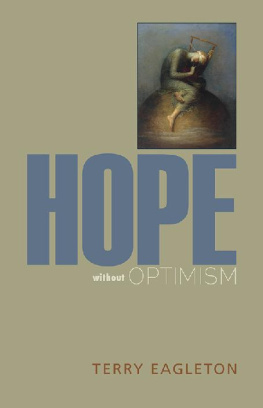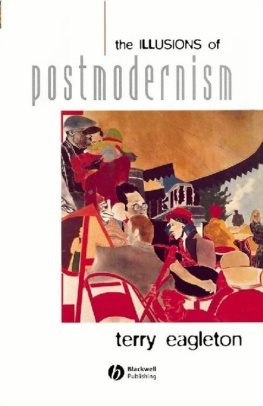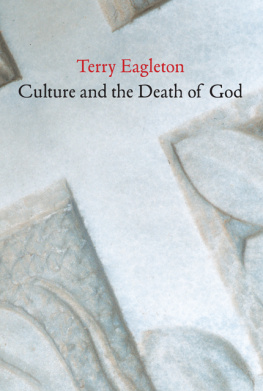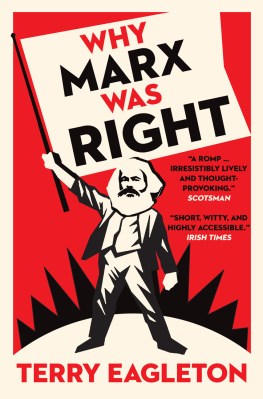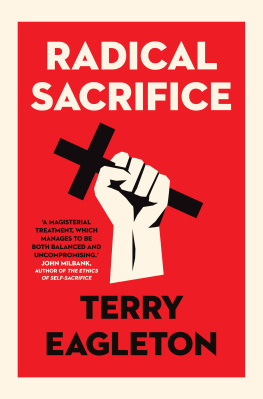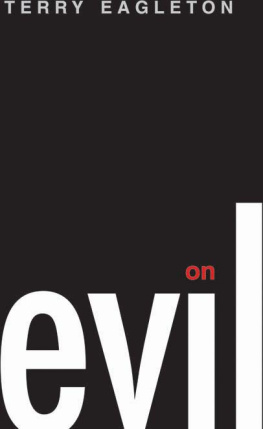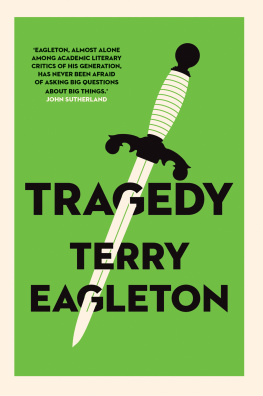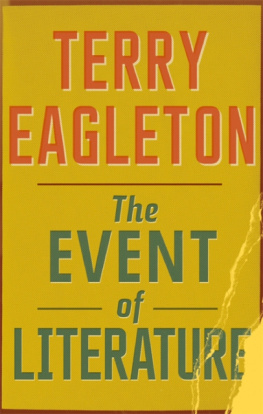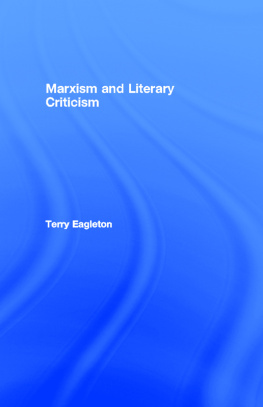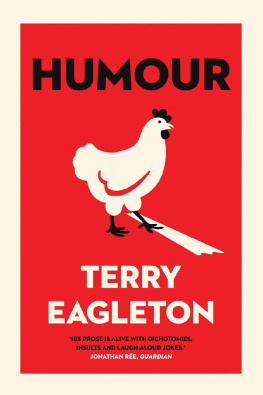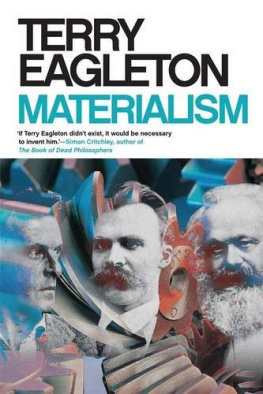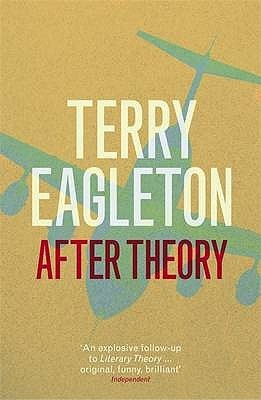Also from the Page-Barbour and Richard Lectures Series
Richard J. Smith Fathoming the Cosmos and Ordering the World: The Yijing (I Ching, or Classic of Changes) and Its Evolution in China
Martin Jay The Virtues of Mendacity: On Lying in Politics
Jean-Luc Marion The Reason of the Gift Translated by Stephen E. Lewis Robert B. Pippin Fatalism in American Film Noir: Some Cinematic Philosophy
Lyndal Roper The Witch in the Western Imagination
William Labov Dialect Diversity in America: The Politics of Language Change
Jean-Yves Lacoste From Theology to Theological Thinking Translated by W. Chris Hackett, with an introduction by Jeffrey Bloechl Martin Kemp Structural Intuitions: Seeing Shapes in Art and Science
Terry Eagleton Hope without Optimism
The Banality of Optimism
THERE MAY BE many good reasons for believing that a situation will turn out well, but to expect that it will do so because you are an optimist is not one of them. It is just as irrational as believing that all will be well because you are an Albanian, or because it has just rained for three days in a row. If there is no good reason why things should work out satisfactorily, there is no good reason why they should not turn out badly either, so that the optimists belief is baseless. It is possible to be a pragmatic optimist, in the sense of feeling assured that this problem, but not that one, will be resolved; but what one might call a professional or card-carrying optimist feels sanguine about specific situations because he or she tends to feel sanguine in general. He will find his lost nose stud or inherit a Jacobean manor house because life as a whole is not so bad. He is thus in danger of buying his hope on the cheap. In fact, there is a sense in which optimism is more a matter of belief than of hope. It is based on an opinion that things tend to work out well, not on the strenuous commitment that hope involves. Henry James thought it rife in both life and letters. As for the aberrations of a shallow optimism, he writes in The Art of Fiction, the ground (of English fiction especially) is strewn with their brittle particles as with broken glass.
Optimism as a general outlook is self-sustaining. Recognizing the intransigence of reality is in Eriksons view vital to the formation of the ego, but it is just this that the chronic or professional optimist finds hard to achieve.
An optimist is not just someone with high hopes. Even a pessimist can feel positive on a particular issue, whatever his or her habitual gloom. One can have hope without feeling that things in general are likely to turn out well. An optimist is rather someone who is bullish about life simply because he is an optimist. He anticipates congenial conclusions because this is the way it is with him. As such, he fails to take the point that one must have reasons to be happy. Unlike hope, then, professional optimism is not a virtue, any more than having freckles or flat feet is a virtue. It is not a disposition one attains through deep reflection or disciplined study. It is simply a quirk of temperament. Always look on the bright side of life has about as much rational force as always part your hair in the middle, or always tip your hat obsequiously to an Irish wolfhound.
The equally moth-eaten image of the glass which is half full or half empty depending on ones viewpoint is instructive in this respect. The image betrays the fact that there is nothing in the situation itself to determine ones response to it. It can offer no challenge to your habitual prejudices. There is nothing objectively at stake. You will see the same amount of liquid whether you are of a carefree or morose turn of mind. How one feels about the glass, then, is purely arbitrary. And whether a judgment that is purely arbitrary can be said to be a judgment at all is surely doubtful.
There can certainly be no arguing over the matter, as for the more epistemologically naive forms of postmodernism there can be no arguing over beliefs. The fact is that you see the world in your way and I see it in mine, and there is no neutral ground on which these two points of view might enter into mutual contention. Since any such ground would itself be interpreted differently by the viewpoints in question, it would not be neutral at all. Neither standpoint can be empirically disproved, since each will interpret the facts in a way that confirms its own validity. In a similar way, both optimism and pessimism are forms of fatalism. There is nothing you can do about being an optimist, rather as there is nothing you can do about being five foot four. You are chained to your cheerfulness like a slave to his oar, a glum enough prospect. All that is really possible, then, as with epistemological relativism, is for the two camps to respect each others opinion in a rather toothless kind of tolerance. There are no rational grounds for deciding between these cases, any more than for a certain strain of moral relativism are there rational grounds for deciding between inviting your friends to dinner and hanging them upside down from the rafters while you rifle their pockets. Authentic hope, by contrast, needs to be underpinned by reasons. In this, it resembles love, of which theologically speaking it is a specific mode. It must be able to pick out the features of a situation that render it credible. Otherwise it is just a gut feeling, like being convinced that there is an octopus under your bed. Hope must be fallible, as temperamental cheerfulness is not.
Even when optimism acknowledges that the facts do not support it, its ebullience can remain undented. Mark Tapley, a character in Charles Dickenss Martin Chuzzlewit, is so fanatically good-humored that he seeks out the kind of dire situations that would drive others to despair, so as to demonstrate that his geniality is not bought on the cheap. Since Tapley wants his circumstances to be as distressing as possible in order to feel satisfied with himself, his optimism is actually a form of egoism, as are most points of view in the novel. It is akin to sentimentalism, another form of congeniality which is secretly about itself. Selfishness is so rife in Martin Chuzzlewit that even Tapleys generosity of spirit is portrayed as a kind of idiosyncrasy or a quirk of temperament, scarcely a moral phenomenon at all. There is a sense in which he does not really want his situation to improve, since this would rob his heartiness of its moral worth. His jovial disposition is thus complicit with the forces that spread misery around him. The pessimist is similarly suspicious of efforts at improvementnot because they would deprive him of opportunities for jolliness, but because he believes that they are almost certain to fail.
Optimists tend to believe in progress. But if things can be improved, then it follows that their present condition leaves something to be desired. In this sense, optimism is not quite as bullish as what the eighteenth century knew as optimalismthe Leibnizian doctrine that we inhabit the best of all possible worlds. Optimism is not as optimistic as optimalism. For the optimalist, we already enjoy the best of all possible cosmic arrangements; the optimist, by contrast, may acknowledge the shortcomings of the present while looking to a more lustrous future. It is a question of whether perfection is here already, or whether it is a goal toward which we are heading. It is not hard, however, to see how optimalism can constitute a recipe for moral inertia, which might then undercut its claim that the world cannot be improved on.
Optimalists are as bereft of hope as nihilists because they have no need of it. Since they see no call for change, they may find themselves in league with those conservatives for whom such change is deplorable, or for whom our condition is too corrupt to allow of it. Henry James remarks that although a conservative is not necessarily an optimist, I think an optimist is pretty likely to be a conservative. encourage their citizens to believe that there is some frightful apocalypse lurking around the corner, it is partly because the alternative to a bright-eyed citizenry may be political disaffection. Bleakness, by contrast, can be a radical posture. Only if you view your situation as critical do you recognize the need to transform it. Dissatisfaction can be a goad to reform. The sanguine, by contrast, are likely to come up with sheerly cosmetic solutions. True hope is needed most when the situation is at its starkest, a state of extremity that optimism is generally loath to acknowledge. One would prefer not to have to hope, since the need to do so is a sign that the unpalatable has already happened. For the Hebrew scriptures, for example, hope has a gloomy subtext, involving as it does the confounding of the ungodly. If one has need of the virtue, it is because there are a great many villains around.
Next page
